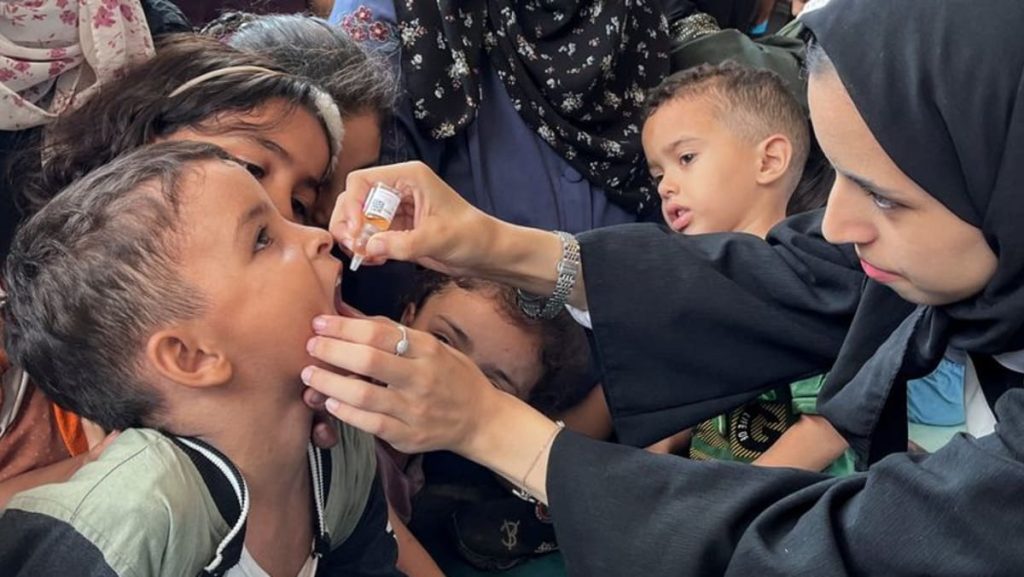The United Nations, along with Palestinian health authorities, initiated a vaccination campaign in the Gaza Strip for 640,000 children. The campaign was necessary due to the confirmation of a baby being partially paralyzed by the type 2 polio virus, which was the first case of its kind in the territory in 25 years. The campaign started in central Gaza and was scheduled to move to other areas in the following days. Israel and Hamas agreed to brief pauses in their ongoing conflict to facilitate the vaccination campaign.
Fighting in the Gaza Strip was scheduled to pause for at least eight hours on three consecutive days to allow for the vaccination campaign to take place. The World Health Organisation (WHO) anticipated that the pauses might need to be extended to a fourth day due to the complexity of the campaign. The first round of vaccinations was projected to last just under two weeks. This campaign was described as one of the most complex in the world by Juliette Touma, the communications director of UNRWA, the UN Palestinian refugee agency.
Touma emphasized the critical nature of the campaign, stating that it was a race against time to reach children with the necessary two drops of the polio vaccine. This campaign required the cooperation of all parties involved in the conflict to ensure that medical workers could access the children in need of vaccination. The success of the campaign relied on the respect for the agreed-upon area pauses to allow the UNRWA teams and other medical workers to carry out their tasks effectively.
The vaccination campaign was a significant effort to protect the health and well-being of children in the Gaza Strip. With the confirmation of a polio case, it was imperative to take swift action to prevent the spread of the virus. The UN, Palestinian health authorities, and other medical workers worked together to coordinate the logistics of the campaign and ensure that all children were reached. The brief pauses in the conflict allowed for a short window of opportunity to carry out the necessary vaccinations.
The success of the campaign depended on the cooperation and compliance of all parties involved in the conflict. By agreeing to pause the fighting, Israel and Hamas demonstrated a willingness to prioritize the health of the children in the Gaza Strip. The vaccination campaign represented a critical moment in the ongoing conflict, highlighting the importance of maintaining essential health services in the midst of crisis. Moving forward, continued collaboration and coordination would be essential to address the health needs of the population in the Gaza Strip effectively.
In conclusion, the vaccination campaign in the Gaza Strip marked a crucial step in preventing the spread of the polio virus and protecting the health of children in the region. The coordination between the United Nations, Palestinian health authorities, and other medical workers was essential in ensuring the success of the campaign. While brief pauses in the conflict allowed for the vaccinations to take place, ongoing efforts would be needed to address the broader health challenges facing the population. The campaign served as a reminder of the importance of prioritizing health services in conflict zones and the need for continued collaboration to address critical health issues.


